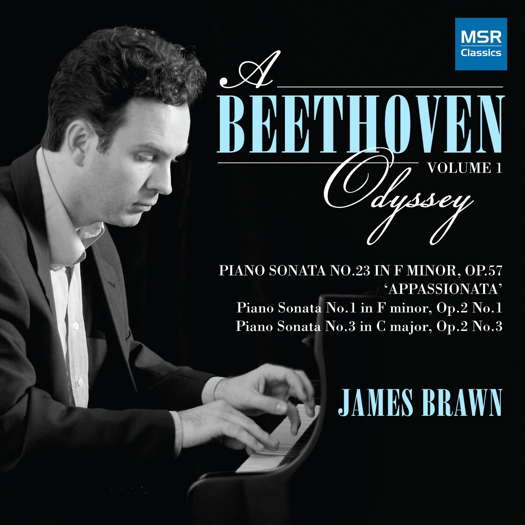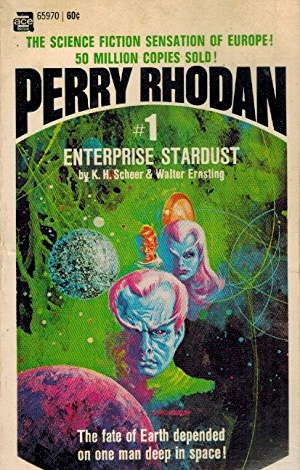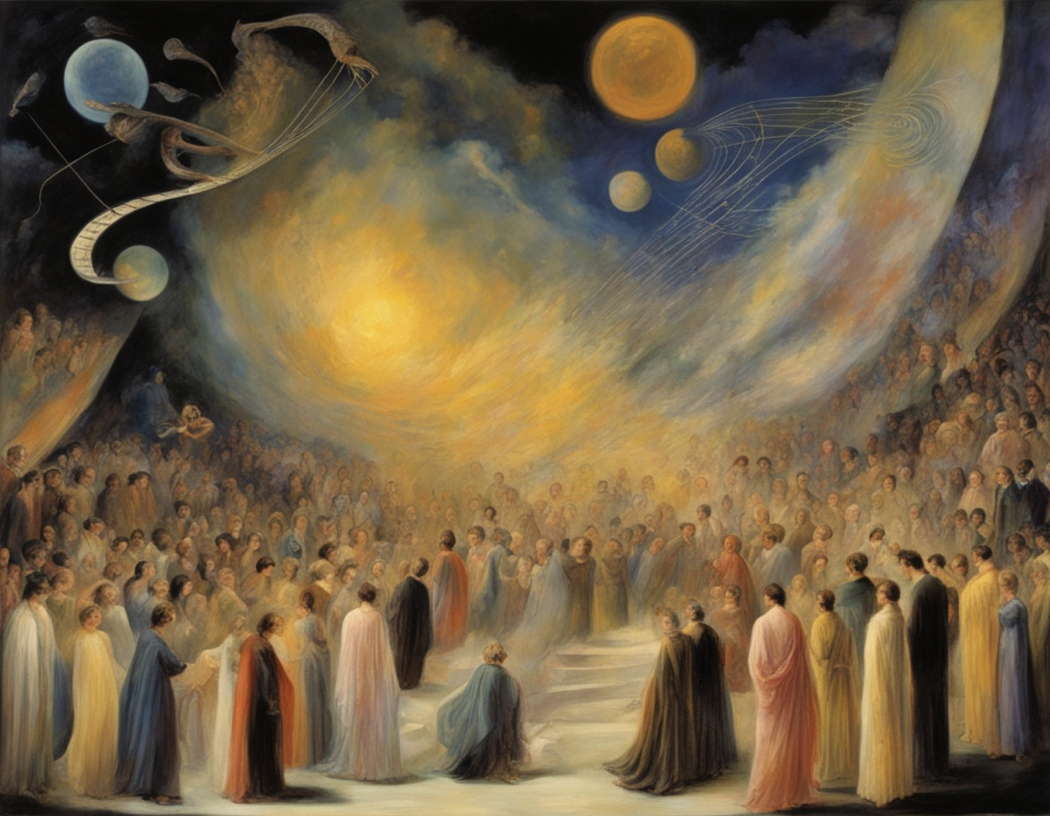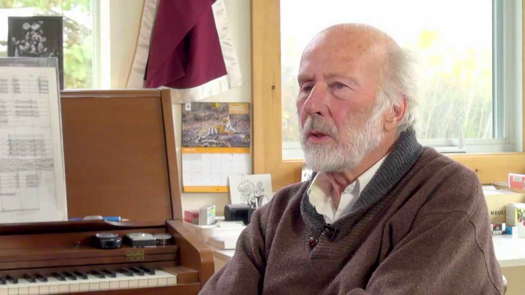 LISTENING TO TCHAIKOVSKY: Béla Hartmann uses his knowledge of Eastern Europe to argue against the banning of all Russian culture following Vladimir Putin's invasion of Ukraine.
LISTENING TO TCHAIKOVSKY: Béla Hartmann uses his knowledge of Eastern Europe to argue against the banning of all Russian culture following Vladimir Putin's invasion of Ukraine.
 SPONSORED: CD Spotlight. Masterfully Controlled - James Brawn's Beethoven Odyssey impresses Andrew Schartmann.
SPONSORED: CD Spotlight. Masterfully Controlled - James Brawn's Beethoven Odyssey impresses Andrew Schartmann.
All sponsored features >>
 DISCUSSION: What is a work? John Dante Prevedini leads a discussion about The performing artist as co-creator, including contributions from Halida Dinova, Yekaterina Lebedeva, Béla Hartmann, David Arditti and Stephen Francis Vasta.
DISCUSSION: What is a work? John Dante Prevedini leads a discussion about The performing artist as co-creator, including contributions from Halida Dinova, Yekaterina Lebedeva, Béla Hartmann, David Arditti and Stephen Francis Vasta.
AI AND THE MODERN MUSIC TO COME

Some thoughts from A P VIRAG
I just watched an AI generated trailer for a 1950s version of Star Wars. Most impressive (including the décolletage). Can it be that a few distinct prompts and some AI data angling can create such a remarkable minute of visuals and music? It's probably harder than that, but let's proceed.
One issue with artificial intelligence (AI) is that it trolls through what has already been done and learns something. This is considered an affront and a kind of larceny.
I'm not much interested in that, just as I am not much interested in the 1950s style trailers. (Besides, I watched trailers like this in the 60s - a little later, and the tone is not quite right. It's in the voice overs. The melody of the voice overs is not quite characteristic of the era). No, trailers aside, there's something else about AI that intrigues me.
Let's start with a selection from the 1960s space opera Perry Rhodan which now boasts some three thousand plus novels in its saga. At the very outset - Enterprise Stardust in the English translation - the Earthmen encounter aliens and find them detrimentally obsessed with their virtual reality.

Perry Rhodan #1: Enterprise Stardust
by K H Scheer and Walter Ernsting
The alien leader Khrest tells the Earthmen:
They are engaged in the usual simulator game. It has contributed much to the collapse of will and spirit among my people. Billions of Arkonides stand vigil by these screens daily while games are created by different masters of the medium.
- Enterprise Stardust by K H Scheer and Walter Ernsting, translated by Wendayne Ackerman, (Ace Books, 1969), page 78. (From the author's personal collection.)
But, it is not just the time lost. Khrest describes something different and much worse:
Our degeneration is not to be found in the realm of normal attitudes or ethics but rather in a total relaxation and surrender of the will.
So weakened by this lifestyle are they that they can not use their almost infinite technological capacities to live life fully (both as a society and as individuals) and run a Galaxy.
It might be that computer games do this, not just AI, but I am not interested in that either. It's the creative indolence that Khrest laments:
We have become indifferent to everything. For us nothing remains exciting, stimulating. Nothing evokes any response in us. The work of the new fictif artist takes precedence over all else. They are preoccupied, you see, with experiencing the latest creation as quickly as possible.
Stay with me. We are almost there.
[We must move from gaming to AI, but please follow along. I'll make points about the differences later.]
I am interested in this question: Who will spend time studying, practising, working to create even a little four bar Blues piece when AI can do it with a few prompts?
I suggest no one.
And that will be a loss.
Wait, did I say no one? I didn't mean that. But, I must explain further.
AI will be able to create 'songs' in any style you like. It can probably write symphonies or will be able to soon - well, there is a completion of Beethoven's Tenth, but I refer to an out-and-out from the ground up original symphonic scope composition. Suppose someone started with say these prompts:
Music for Symphony;
With large orchestra;
Musical Influences: Gustav Mahler, Messiaen and Varèse;
In five movements (Allegro, Scherzo, Interlude, Adagio, Fugal Chorale Finale);
Last movement with texts on the Gnostic nature of the world.

An image generated by artificial intelligence (AI) software using the prompts above
Click enter and within a few spins of the hard drive - do hard drives spin anymore? I am old - and the music may/will pour out.
And then the AI composer can upload to an online streaming service and start earning the real bucks as people download the music to while away the time while riding a stationary bike. It will provide them with good chance to ponder the nature of Mahler, Messiaen, Varèse and this Gnostic universe.
Everyone will be thrilled and the world will take a step towards Perry Rhodan's universe.
You see it does not take much to put together those prompts. One does not need to know Mahler's habitual melodic designs, nor the rules of composition that Messiaen invented for himself, nor the sonic lucubrations that led Varèse to such a fantastical sound world. Nor does one need to master those elements, burn them into one's mind and then scratch them out on a page over many months, or pound them out on a piano after years of practice. It's all just 'done' and we can sit back and bask in its glory.
But, it may be that not quite as much money will be earned, especially as it turns out everyone can do it. The market will be flooded (how many terabytes does YouTube already have?) and when that happens prices drop. Basic economics, people. 'Bad money drove out good' (Gresham's Law) and 'Bad music drives out good' (Virag's Law).
I must now defend my poor differentiation of gaming and AI generated content. Notice that the games were 'created' in the above quotation. So the element of creative action is somewhere there. But, games are not the same as AI. I suggest that the difference is because the authors of Perry Rhodan, though they saw much, did not foresee immersive AI generated virtual reality. When that reality is achieved, at that point any difference between AI music, or Art, or novels is unimportant. We will be living in a generated world. And that is crucial.
Perhaps you think I am done. Not at all, because the real point of my little essay remains:
Indeed, there is one more crucial element to my saga.
Who will be left standing?
You know, the phrase in movies 'Last man standing' after the catastrophe of the murderous rampage? There's even the trope of the 'final girl' in horror movies. Can we foresee who it be left standing after the AI tsunami?
Or more precisely: Who will still bother to create anything on their own by human (and difficult) and not AI methods?
Who will still create the way Leonardo drew, Shakespeare enacted, Bach composed, Kant thought, Melville wrote, Rumi poeticized, or even Picasso painted?
I will tell you.
The great Canadian composer, author, artist, scientist and creator R Murray Schafer (who truly deserved the Nobel Prize) wrote somewhere the intriguing suggestion that governments should cease offering grants to support the arts. Then, Schafer went on, only the people who truly were devoted to Art would remain. The ones in it for the money would go elsewhere.

Raymond Murray Schafer (1933-2021) in 2013
There it is. That's who will be left. The ones who do spend years delving into their craft, delving into the practice, delving into the morass of this world's structure seeking the truth to express what they have discovered in some art form. It happened before, as culture collapsed in Ancient Rome, Plotinus, Iamblichus, Proclus and a handful of others delved deeper and deeper in the core of reality (as they saw it) when there were few that cared and many that would have had their heads.
These are the ones who will keep creating in all fields, not just music, but all art forms, because something burns within them and they must encourage it until something great and wonderful bursts forth in iridescent flames. Because the process changes something in themselves and that is the point.
The rest of the 'faux' creators will go and come up with another 'prompt set', and laugh with the results, like some kind of weird cocktail party at the end of culture.
I know where I will be.
Copyright © 19 September 2024
A P Virag,
Carlstadt, Alberta, Canada


